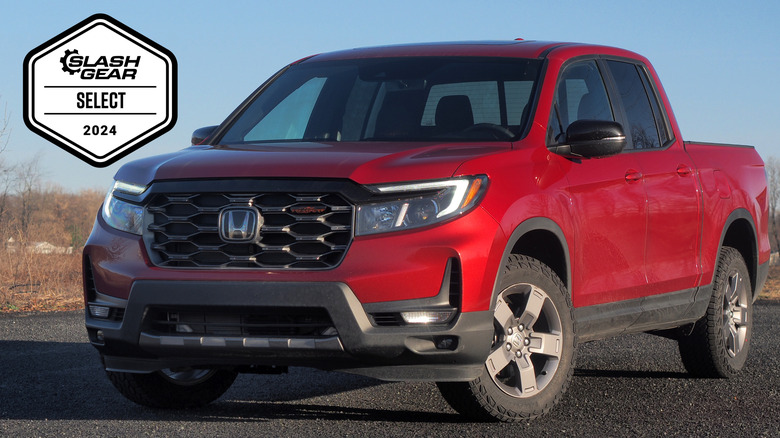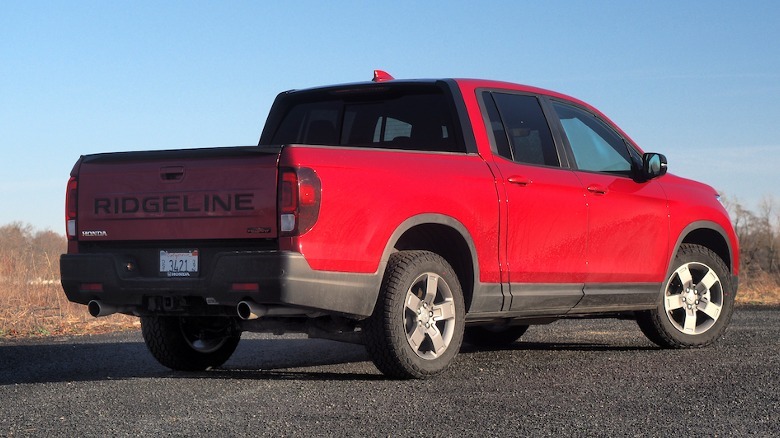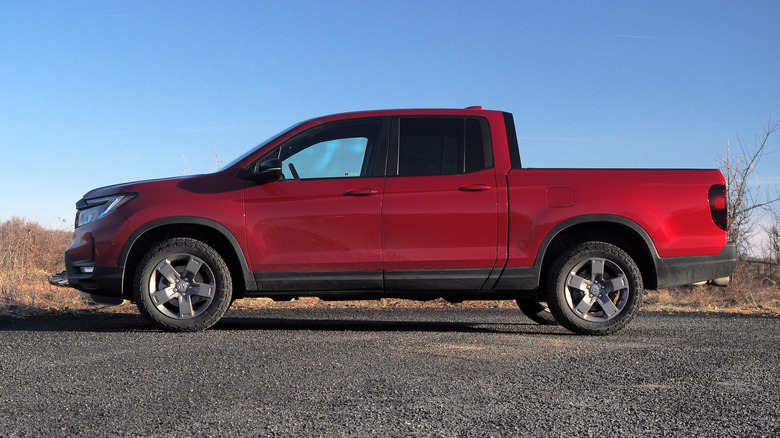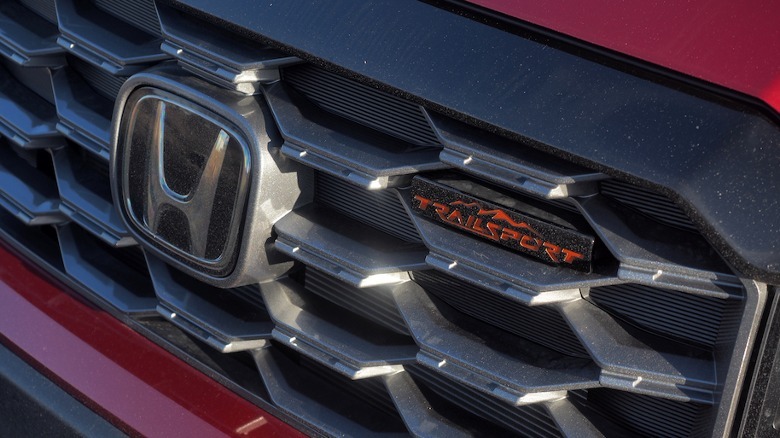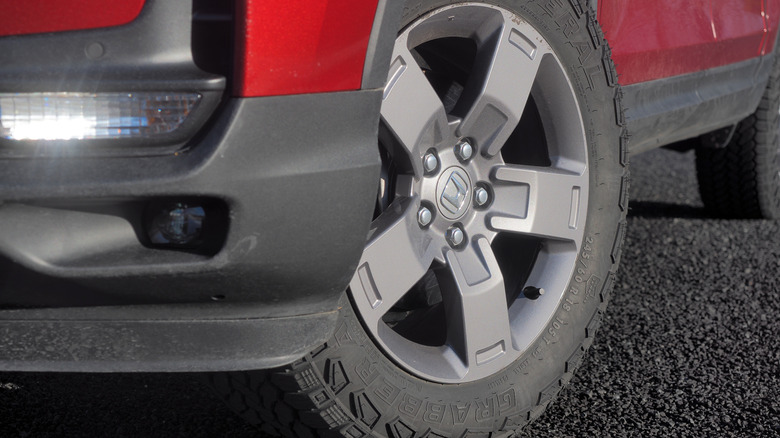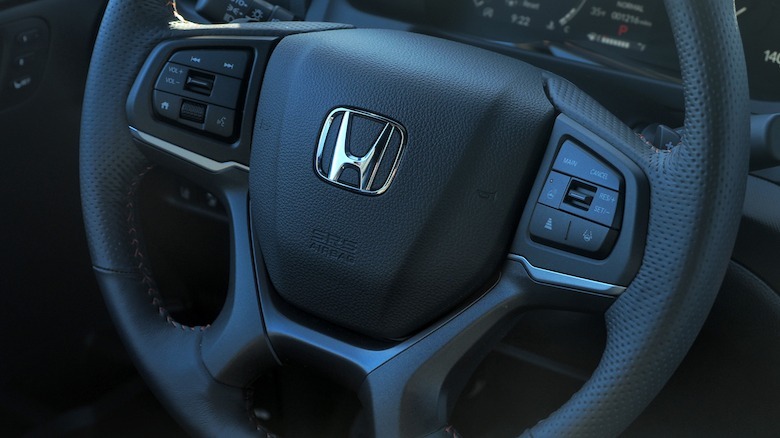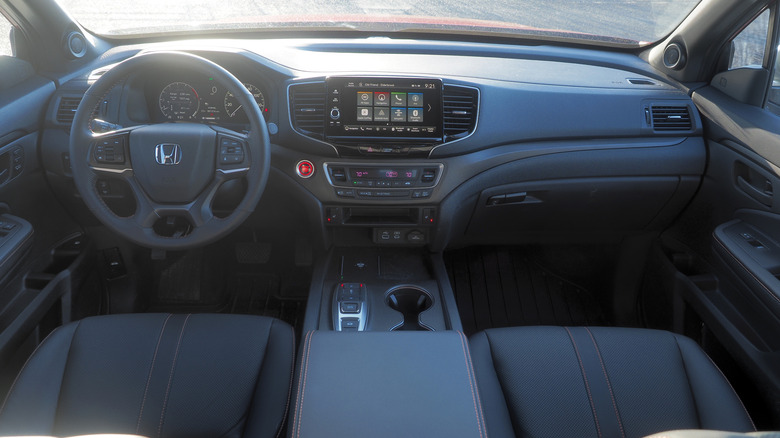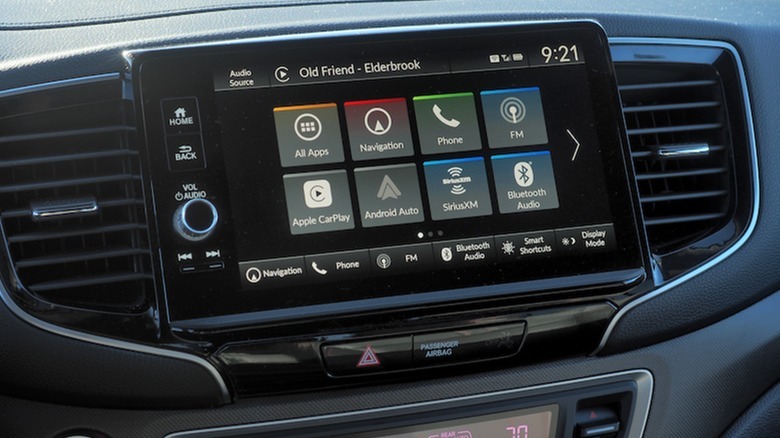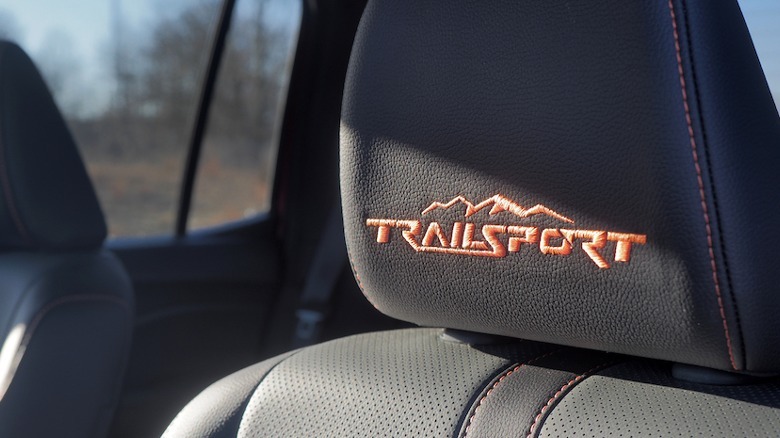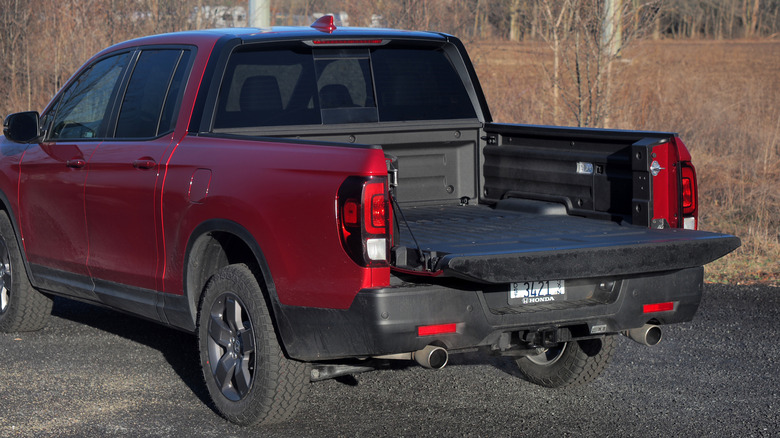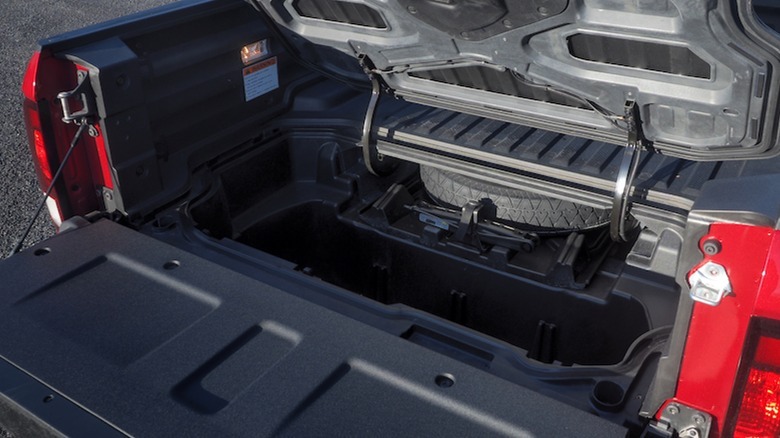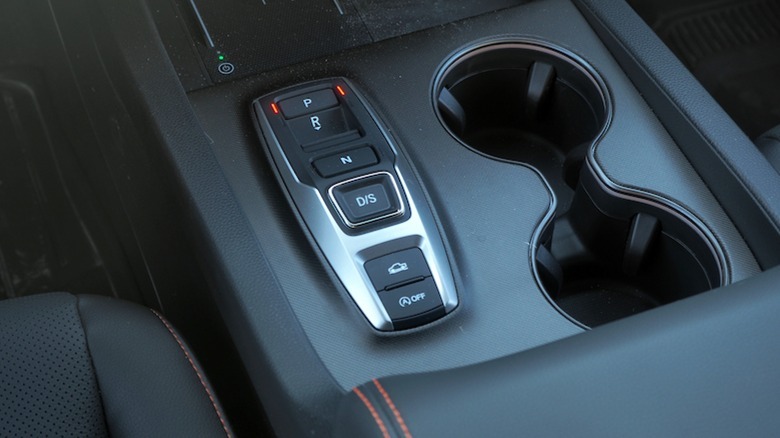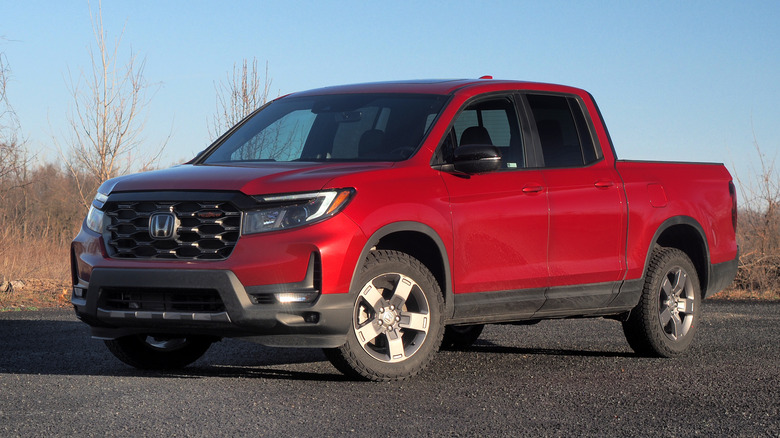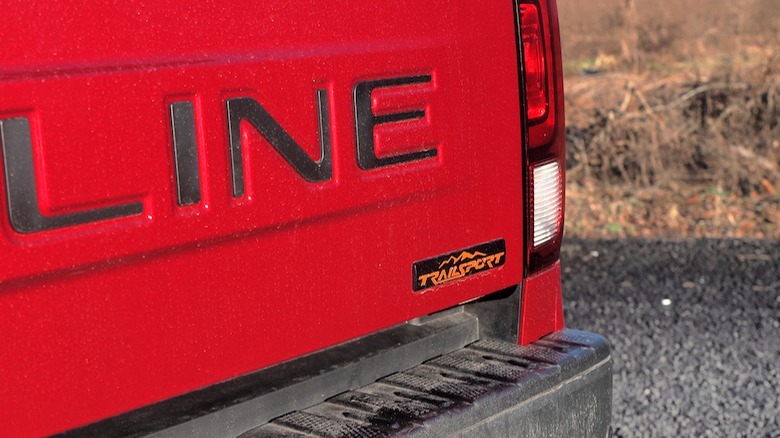2024 Honda Ridgeline TrailSport Review: The Downside To Calling Out Rivals
- Car-like driving dynamics make for a refined ride
- TrailSport trim looks the part
- Flexible bed and cargo storage options
- Key active safety tech comes standard
- No hybrid option
- Lacks the true off-road focus rivals offer
- Tech is feeling tired
The 2024 Honda Ridgeline TrailSport dares poke the average pickup shopper, asking them to quantify exactly what they want a truck for. Sure, some drivers really do need the capability and capacity of a traditional pickup, and who are willing to accept the compromises that come along with that. But what if your practicality demands are a touch more mainstream, and an SUV without a closed-in cargo space is more akin to what would really fit into your life?
Where the first-generation Ridgeline looked, well, pretty odd for a pickup, Honda made its truck somewhat more mainstream when it launched the second generation in 2017. In fact, it looked — and still does — like a Pilot with a different rump. Aesthetic massaging over the intervening years has given it a more aggressive edge, and the TrailSport's 18-inch Pewter Gray alloy wheels and beefier grille mesh are handsome.
The TrailSport isn't just a styling package, mind, even if it doesn't go as far as rivals do with their off-road focused trims. What you don't see is the extra underbody protection, along with a special tune to the suspension. Kicking off at $44,980 (plus $1,395 destination), it's the third-most expensive Ridgeline trim, more than $5k over a base Sport, and $2,400 more than what has so far been the obvious pick, the $42,580 (plus destination) RTL trim.
A target on your back for ride refinement
Much has been said about the Ridgeline's car-like driving dynamics, and to be clear that's usually a very good thing. Pickup trucks have, traditionally, been both capable and not exceptionally comfortable. Body-on-frame designs are typically credited as being more resilient, whereas unibody designs — more commonplace on mainstream SUVs — are more compliant. Honda's gauntlet throw-down was its decision to base its pickup on the same platform as the Pilot, meaning Ridgeline could share that SUV's relative refinement. It was a strategy at odds with the rest of the industry at the time, where the focus had always been on rugged prowess.
Things get a little more complicated with this TrailSport trim, mind. Honda's knobbier General Grabber A/T Sport all-terrain tires, combined with the off-road tune to the suspension, steal some of the pickup's usual SUV-esque poise. There's definitely a compromise involved, and while it doesn't leave the Ridgeline uncomfortable, it was a reminder that the delta between Honda's truck and what rivals can do on the asphalt has narrowed considerably in recent years.
At the same time, the rugged downsides aren't quite so glaring as in, say, Chevrolet's or Ford's burlier variants like the Colorado Trail Boss we reviewed a few months back. Of course, while the Ridgeline TrailSport may not be your first choice for a full-blown adventure, I suspect for most people asking for a little more capability from their everyday pickup the balance here is sufficient, even if they don't end up feeling like a Baja badass when they glance back in the parking lot.
The same power from the same V6
Unchanged is the Ridgeline's standard drivetrain, a 3.5-liter naturally-aspirated V6 gas engine paired with all-wheel drive and a 9-speed automatic transmission. It packs the same 280 horsepower and 262 lb-ft of torque as the other trims, and the same quartet of drive modes: Normal, Snow, Sand, and Mud. Even the transmission gearing is unchanged.
Those off-road tires don't just impact ride quality but fuel economy, too, even if it's only by a marginal amount. The Ridgeline TrailSport is rated for 18 mpg in the city, 23 mpg on the highway, and 20 mpg combined. Sport, RTL, and Black Edition trims are rated for 18 mpg city, 24 mpg highway, and 21 mpg combined. My own, mixed driving clocked in at 18 mpg.
As midsize pickups go, Honda's truck slots in right in the midst of its most obvious rivals. Toyota's brand new 2024 Tacoma does slightly better with its 2.4-liter inline-four turbo, while Chevrolet's 2.7-liter inline-four in the Colorado and Ford's 2.7-liter turbo six-cylinder in the Ranger both pretty much match up with the Ridgeline's numbers. Conspicuous by its absence is any sort of hybrid-electric option, as Toyota will offer on its midsize truck imminently, and which could bring more expensive Tacoma trims an uptick in economy along with a bump in power.
Rivals have raised the gadget game
Spend too much time looking at the Tacoma, in fact, and you could start to wonder whether Honda is overdue a Ridgeline revamp. The cabin only underscores that, and while you could argue that the tri-zone HVAC controls are suitably scaled and laid out for TrailSport-embracing off-road drivers wearing gloves, the same can't really be said for the diminutive infotainment screen. Honda bumped it up by an inch, but even at 9 inches it looks small on the Ridgeline's dashboard, and more so when you consider the whopping 14 inches available in Toyota's truck.
At least Honda offers wireless Apple CarPlay and Android Auto, and a 215W 7-speaker audio system including a subwoofer is standard. If you want more than just two USB ports — one USB-A, the other USB-C — then you'll need to pick the most expensive Black Edition, which adds a further two USB-C charge ports in the rear. At least a wireless phone charging pad is standard across the board, and the controls on the refreshed steering wheel are far easier to navigate than when we reviewed the pre-facelift version.
While Honda offers some bright paint colors, for the interior it's black leather only (there's a rather handsome brown leather version, only offered on the RTL trim, and a red version available on the Black Edition; base-spec Sport trucks get black cloth). The contrast stitching looks neat (a little more of it would be even better) but the black-on-black-on-black dashboard leaves what's actually a fairly spacious cabin feeling claustrophobic. The front seats are heated, but only those in the Black Edition get ventilation.
For everyday flexibility, Ridgeline still shines
Honda only has one bed size option for the Ridgeline, 5.3 feet long with 33.9 cu-ft of volume. Open the tailgate and you can pull a handle to access a further 7.3 cu-ft of lockable under-bed storage. The deep bin has a drainage hole for easier cleaning, and the dual-action tailgate that swings to the side as well as folding down means reaching it — and items inside — isn't as much as a stretch as you might imagine.
Of course, if you've filled the bed, then actually opening that bin's lid is going to be trickier. Total payload capacity is 1,521 pounds for the TrailSport — slightly down from the Sport and RTL, but more than the Black Edition — while all trims are rated to tow 5,000 pounds. Not class-leading, but Honda has always maintained it's more than sufficient for most midsize truck owners' typical loads. Bed lighting and eight tie-downs are standard, but only the top spec gets an AC power outlet.
If you're relying on the TrailSport to take you to a biking trail, you could get away with not loading your mountain bikes in the bed: flipping the rear bench up leaves sufficient space. Muddy wheels may make you rethink that on the way back, mind. The $2,750 HPD+ Package, meanwhile, adds an oil pan guard among other tweaks, if you really do insist on testing the Honda's limits.
2024 Honda Ridgeline TrailSport Verdict
Honestly, even in TrailSport form the 2024 Ridgeline doesn't really encourage you to roam into the rough stuff. There's no low-range gearing, no control over locking differentials, and no bump from the standard 7.64 inches of ground clearance (unlike the Pilot TrailSport, which gets a 1-inch lift to 8.3 inches total). A 360-degree camera — which would be equally useful in navigating tight parking lots — remains absent, even if Honda includes things like adaptive cruise control and blind-spot warnings as standard.
Bird's eye camera aside, are these omissions which the typical Ridgeline buyer — or, for that matter, the average pickup buyer — would miss? Maybe not: you could make a solid argument that most mainstream trucks are over-specified for what their owners actually require of them. It's a shame, then, that Honda hasn't leaned into this "what you need, not what you want" approach with things like a hybrid drivetrain.
The 2024 Ridgeline TrailSport is still a solid, commendable truck. Honda, too, probably deserves at least some of the credit for nudging the industry overall to add car-like creature comforts to their list of pickup priorities. That achieved, though, the arrival of capable competitors like the new Toyota Tacoma edge in on the Ridgeline TrailSport's refinement without sacrificing genuine off-road flexibility or economy. As a result, Honda's truck isn't quite the category-of-one contender that it once felt like: maybe Honda's argument was just too successful.
